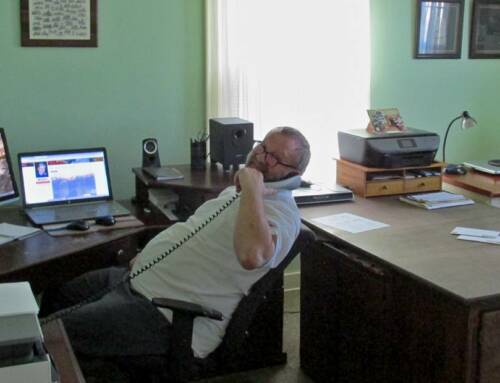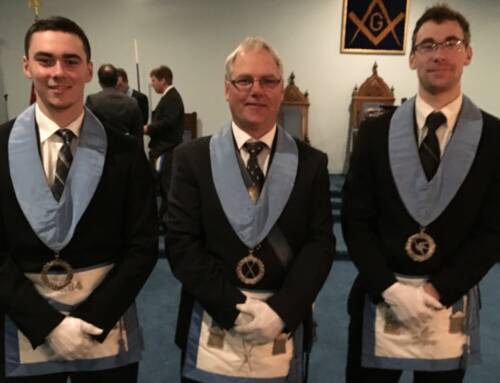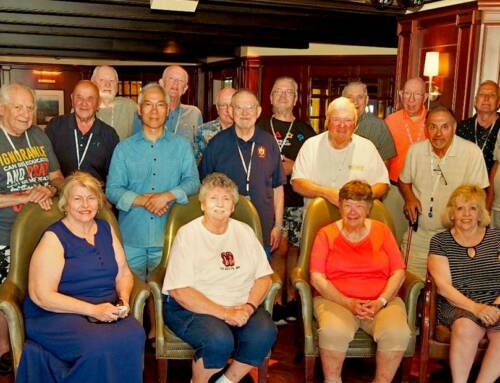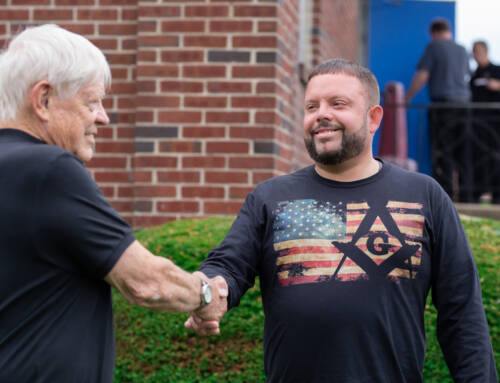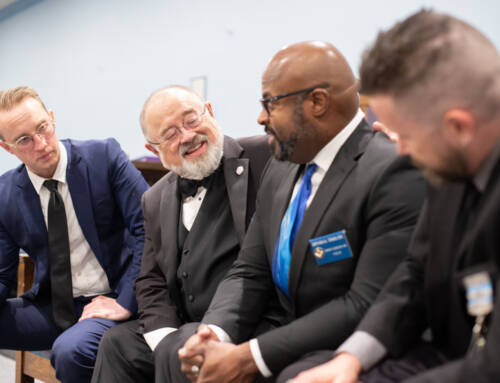The Most Frightening Question: “Why Should I Join?”

If you’re like me, there are certain things that make you very uncomfortable — actually afraid to be honest. My personal fears include snakes, tall heights and liver with onions. But near the top of that list would be the question from a potential member: “Why should I join the Freemasons?”
What makes me squirm is that my answer isn’t short and sweet. It’s layered and complex. All of us get so invested in the Craft that we tend to lose perspective about how outsiders see us. After many years, I’ve developed some answers to this question. I try to remember that one shouldn’t “sell” Freemasonry. I simply talk about the benefits, and let the “prospect” make up his own mind.
First of all, Freemasonry offers an arena for personal achievement. The individual is honestly needed by the Craft for his talents and potential. If a newly-raised member works hard, and learns the customs and ritual, he can advance “through the chairs” and become Worshipful Master. He will be promoted through his own hard work and commitment, not by chance or influence. How many organizations can honestly say that they operate in this way?
Second, the process of becoming a Masonic leader can prove invaluable. The process of lodge advancement involves informal courses in public speaking, running meetings and administration. These are skills that are transferable to other areas of life.
Third, Masonic membership involves learning to harness the power of memory. This is a lost skill in our modern world. Before the advent of writing, many humans routinely had to memorize vast amounts of information. This ability has now been largely neglected. Only a few professions such as politics, law or the theater, require memory skills. Masonry helps to reawaken this amazing human ability.
Lastly, all men are equal within the confines of a lodge. Members interact without the cues of class, wealth, political opinion or religious belief. With these artificial barriers removed, Freemasons are able to forge deep, honest, long-lasting bonds of friendship and respect with their fellows.
If these were the only benefits to belonging, they would make a formidable case, but there are other rewards. The defining aspect of Freemasonry is the shared experience of initiation. Most social groups have rites of membership but often it is a one-time experience. Aside from pleasant memories, there are few long-term effects.
Freemasonry is different. An important element of Masonic life is the reenactment of the initiative ceremonies again and again. It is obviously important to each candidate, but repetition enables each brother to continuously explore the experience anew. If one listens sympathetically, layers of meaning are added, and the individual becomes ever more connected with the group.
Ritual can be consoling. Belonging to a lodge can alleviate some of the pressures of modern life. Many forces compete for our attention and energy: family, children, job, taxes, friends, even politics. The list seems endless. The pressure can be relentless. Sometimes it’s hard for the individual to find room to breathe. Freemasonry can provide a peaceful space.
Sociologists have theorized that formal rituals can have transformative effects on humans. By entering into the ceremony — even as a spectator, we lose ourselves in something larger. Masonic ritual gives its participants a vision of the good, the true and the honorable that remains in memory even after returning to the chaos and confusion of everyday life. By observing the unique details of ceremony, we give ourselves up to a larger pattern and create within ourselves a vision of excellence.
It is this psychological aspect of Freemasonry that is so valuable. The other, tangible benefits are great, but they pale in comparison to the opportunity for inner peace and fellowship. Within this safe, welcoming atmosphere, every man is free to develop himself in harmony with his fellows. The philosopher (and Brother) Voltaire expressed it best. In the novel Candide, he has a character repeat this advice: “We must cultivate our garden.” This is what Freemasonry gives each member: the space, time, and peace to cultivate one’s inner garden and become a better man.
After listing these all these advantages to a prospective member, I often end with a question of my own: “What kind of price would you put on an opportunity like this? How about considering becoming a Freemason?”
_______
By Robert E. Burtt, PM
Harmony Lodge No. 429
Robert E. Burtt PM, PHP, PTIM, PEC, has earned the certification of Master Masonic Scholar from the Pennsylvania Academy of Masonic Knowledge. Among his other writings are “A Pennsylvania Masonic Handbook,” and “A Guide to Modern Freemasonry.”



